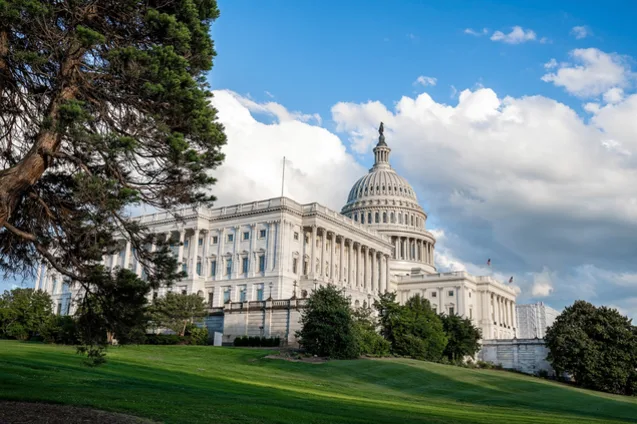Topics: One Big Beautiful Bill Act, Recruitment Outsourcing, Tax Implications for Staffing Firms
Posted on July 10, 2025
Written By Ranjana Singh

On July 4, President Donald Trump signed into law what he called the “One Big Beautiful Bill Act” — a $3.3 trillion tax and spending package with wide-reaching implications. While the name may sound like a campaign slogan, the law represents one of the largest tax policy changes in recent years. For staffing firms, it brings both potential opportunities and pressing concerns.
Let’s break it all down, what the bill includes, what’s been left out, and what it means for the staffing industry.

The phrase “One Big Beautiful Bill Act” has long been used by Donald Trump in his speeches, often referencing sweeping reforms he promised — especially in healthcare, taxes, and immigration. On July 4, 2025, it finally took legislative form when the President signed a $3.3 trillion tax and spending bill into law.
This bill extends key tax cuts, reshapes Medicaid, increases immigration enforcement funding, and brings changes across healthcare, defense, and more.
The bill makes permanent the reduced corporate tax rates introduced in 2017, allowing businesses, including staffing firms, to retain more profits for reinvestment and expansion.
“This change, along with temporary tax breaks for individuals, acts as a tailwind for economic growth,” says Timothy Landhuis, VP of Research at SIA.
The Senate version extends the 20% pass-through deduction for business owners, a key tax benefit for small and mid-sized staffing firms. While the House proposed raising it to 23%, the Senate settled at 20%, still a significant win.
“This avoids a major tax hike at year-end and ensures continued relief for firm owners,” says Toby Malara, VP of Government Relations at the American Staffing Association (ASA).
These may not directly impact staffing firms but can increase take-home pay for placed workers, potentially improving fill rates and retention.
Roughly $150 billion each is earmarked for immigration enforcement and national defense, areas that traditionally drive staffing demand in government contracting, security, logistics, and compliance-related roles.
The bill includes nearly $1 trillion in Medicaid cuts, with 11.8 million Americans expected to lose coverage according to the Congressional Budget Office. Critics warn this could:
The American Nurses Association and American Hospital Association have called this a “devastating blow,” warning of downstream effects on healthcare access, staffing levels, and care quality.
While immigration enforcement spending may benefit some niche firms, it could reduce the available workforce by increasing deportations and lowering immigration rates — particularly for industries that rely on immigrant labor.
Because the bill adds $3.3 trillion to the deficit over 10 years, future federal budgets may become tighter. This raises the risk of:
Some proposed changes didn’t make it into the final version — a relief for several sectors, especially healthcare staffing:
A proposed change that would have taxed travel nurse per diems was removed, preserving a key financial advantage for travel clinicians.
Language that muddled the use of Individual Coverage Health Reimbursement Accounts (ICHRAs) was dropped from the final bill, clearing the way for staffing firms to continue using them for employee benefits.
While the bill omits the WOTC extension — which provides tax credits for hiring from disadvantaged groups — there’s hope it will return in a bipartisan tax extender bill later this year.
With corporate and pass-through tax reliefs now permanent, staffing firms should revisit their tax planning to maximize deductions and reinvest profits.
Firms focused on Medicaid-supported facilities or rural health must prepare for a likely drop in demand. However, roles tied to care transitions, insurance verification, and outpatient services may rise.
Defense and immigration-related spending could create opportunities for staffing firms with experience in government contracts or those looking to expand into new verticals.
Tighter immigration and Medicaid-linked job loss could shrink the candidate pool in some sectors. Sourcing, retention, and candidate engagement strategies will need recalibration.
The One Big Beautiful Bill Act presents both promise and uncertainty for US staffing firms. While tax policy changes and increased federal spending offer room for growth, healthcare cutbacks and a tighter labor pool demand strategic adjustments.
To stay competitive, staffing firms will need to stay lean, diversify their focus, and respond quickly to shifting demand. That’s where QX’s outsourced recruitment services can help—by offering cost-effective sourcing and compliance support, helping firms scale without inflating overheads. Subscribe to our newsletter for regular staffing updates.
Enjoyed our blog? Discover more about how our recruitment outsourcing process can slash your costs by up to 60%! Take the next step—book a call by entering your details.
Originally published Jul 10, 2025 11:07:26, updated Dec 16 2025
Topics: One Big Beautiful Bill Act, Recruitment Outsourcing, Tax Implications for Staffing Firms